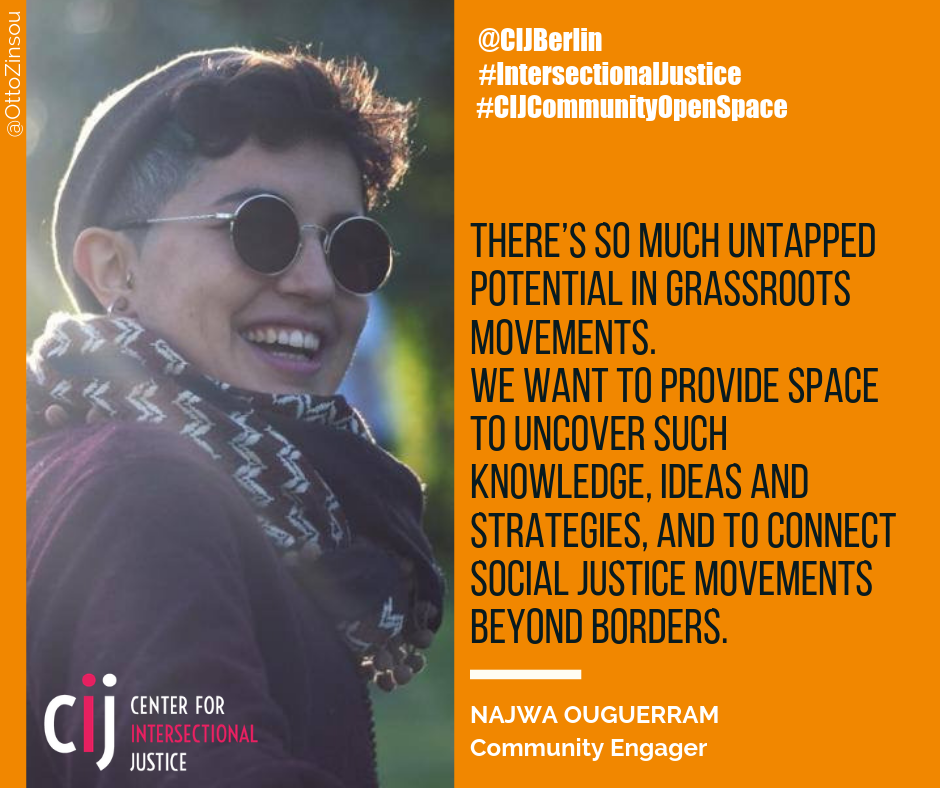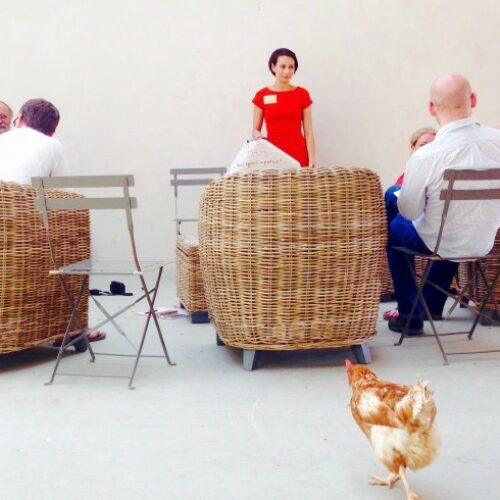The Centre for Intersectional Justice (CIJ) is an organisation that brings together social movements for equality and justice and offers a paradigmatic shift to the way we analyse, address and combat systemic inequalities.
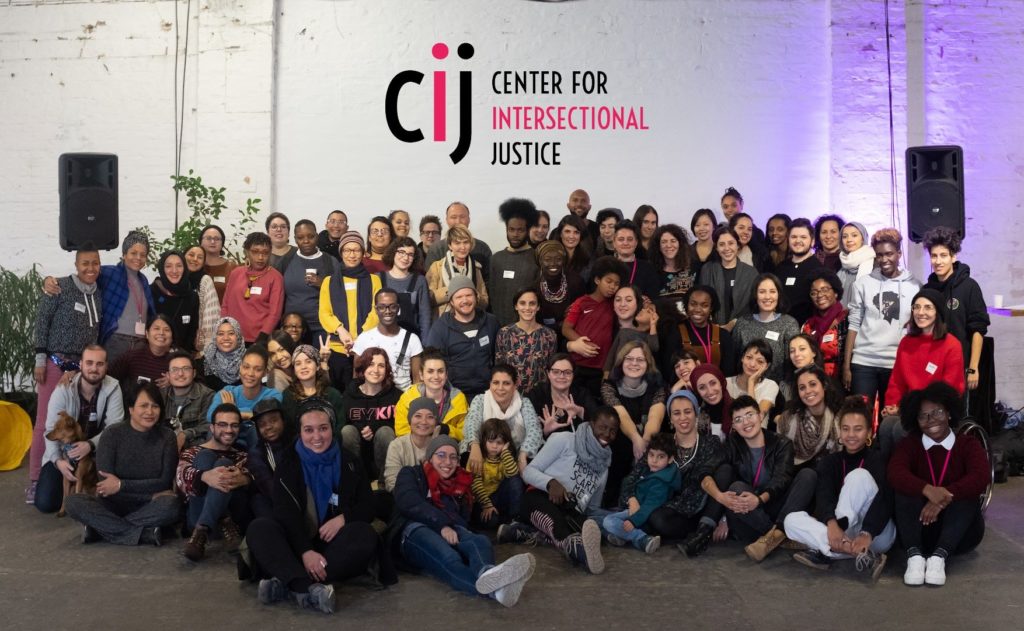
CIJ’s mission is to advance intersectional justice – a more transformative form of social justice – through multi-tier, intersectional movement building and advocacy in Europe. It means that the feminist movement should be inclusive of all women, that the movement for ethnic and racial diversity is inclusive of feminist values, that the LGBTQI+ movement includes ethnic/religious minorities and people with disabilities, that the Climate Justice movement takes gender, class, ethnicity, capitalism and other social dimensions into consideration.
Intersectional justice cannot be achieved without systemic change because looking at the root causes of social inequalities presupposes challenging the status quo and creating alternative governance and economic models.
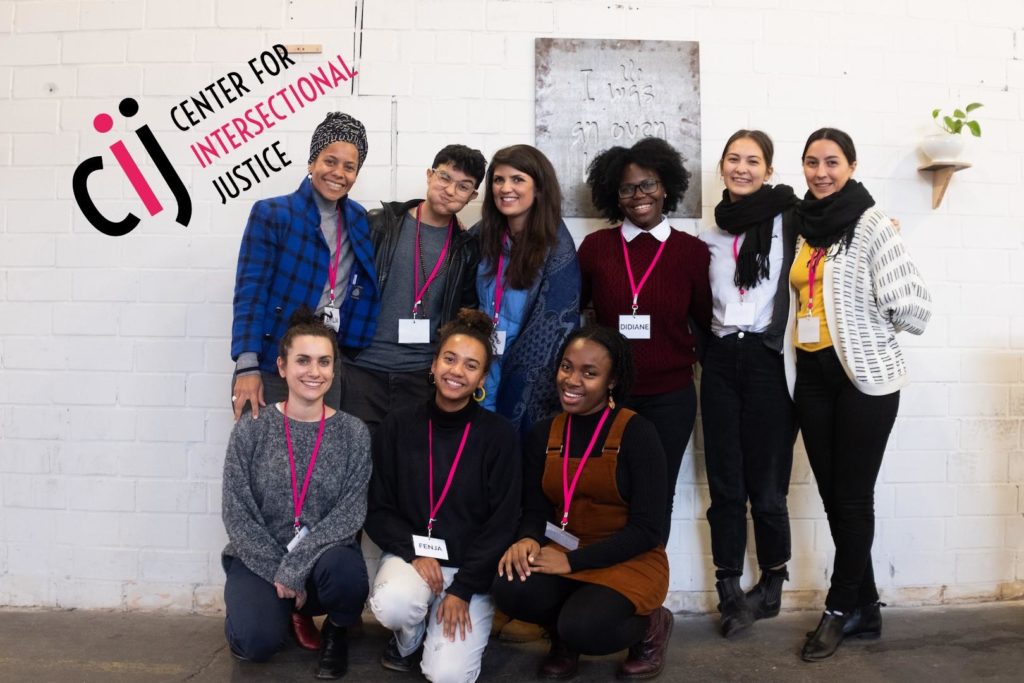
Intersectionality is all about addressing the root causes of social inequalities. The CIJ (1) advocacy, (2) research and (3) training activities fit in the puzzle by (1) raising awareness about the need for an intersectional perspective in the fight against social inequalities; (2) providing facts and figures on the increased effectiveness of an intersectional approach and on the problems linked to a lack of intersectional analysis; and (3) training people, organisations and movements on the concrete application of intersectionality and providing spaces of exchange and collaboration (e.g. Community events, Open Spaces, etc.).
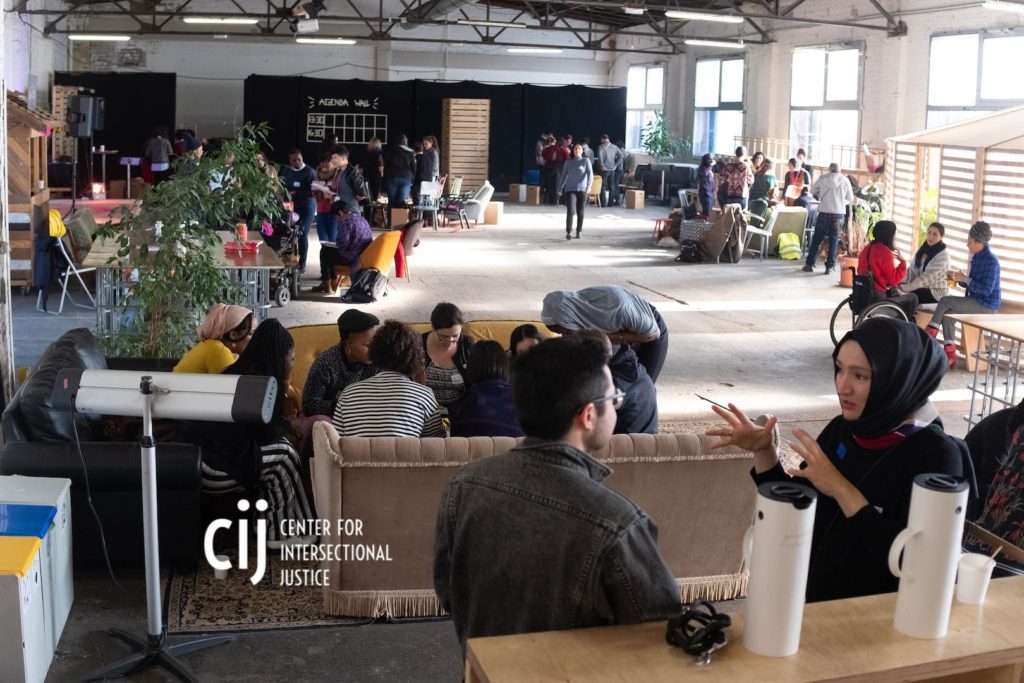
CIJ brings a paradigmatic shift to social justice movements through an intersectional perspective and new modes of community organising. The following long-term outcomes build the basis for larger systemic impact:
(a) A deepened understanding of communities, social justice issues, and strategic opportunities: An intersectional analysis illuminates the multidimensionality of targeted populations and surfaces more inclusive opportunities to engage those communities. For example, the workers’ rights movement that doesn’t explicitly include workers with disabilities can invisibilize important political demands and miss potential for social change for all workers.
(b) Increased effectiveness in bringing about long-lasting systemic change: With a deepened and more expansive understanding of communities, and increased collaboration and engagement among different groups and movements, the likelihood of creating more effective and impactful strategies drastically increase. For example, an anti-racist perspective in the LGBTQI+ movement ensures that anti-homophobia campaigns do not represent Muslim and migrant communities as inherently homophobic and instead work towards their inclusion, which in the long-term contributes to higher social cohesion.
(c) Stronger communities and networks: When an intersectional lens is used to analyse social problems it can open up the possibility for greater collaboration between what are often seen as different or opposing social groups and movements. An example is the way in which the climate justice movement has included people living in poverty or in precarious circumstances as well as indigenous people in the global environmental movement and bringing under scrutiny issues such as equality, human rights, collective rights, and the historical responsibilities for climate change. Similarly, the way some feminist organizations and migrants’ rights organizations have joined to organise around immigration detention, the care crisis, and the gender pay gap is a good example of intersectional organising.
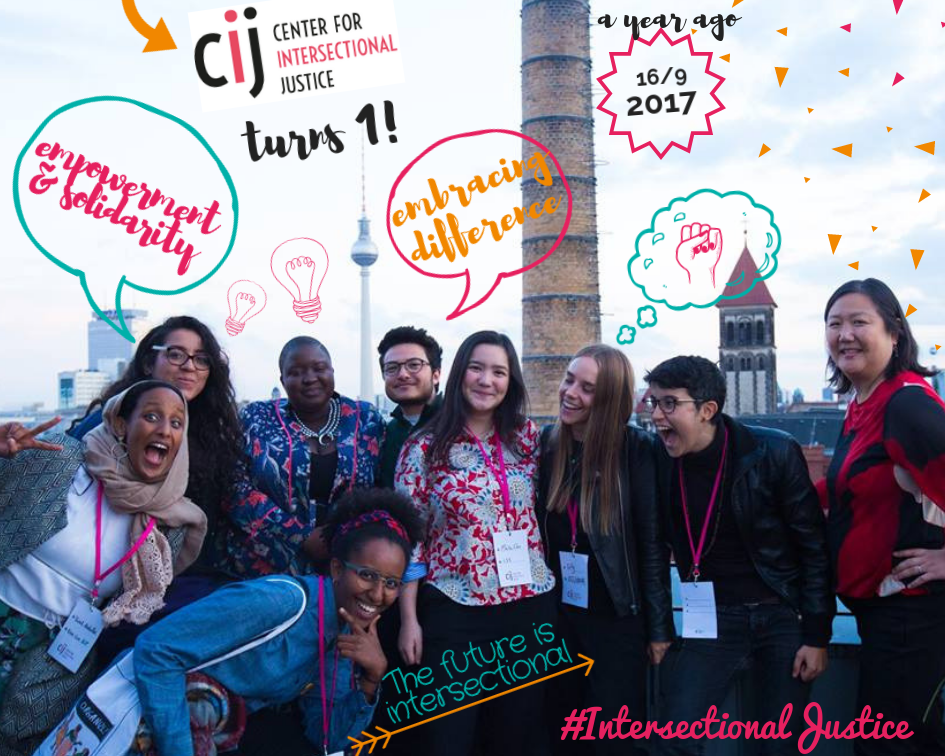
The Guerrilla Grant
Our grant for CIJ goes towards core costs, therefore is simply meant to fuel their work horizontally, and they’re to utilise it as they see fit, but this mainly involves covering salaries of their intrepid staff so that this tiny, but powerhouse team can continue kicking butt. Therefore instead of detailing how our grant is spent we’ll just tell you why we’re excited to be funding them.
- CIJ is the first independent advocacy organisation in Europe seeking to implement an intersectional approach to social justice movements. They’re unique because:
– They’re deeply involved in the grassroots communities that they represent
– They live diversity! Their staff, associated experts and board members are all representatives of the communities they work with
– They care about the root causes of issues, even if it’s harder and takes more time
– They’re connected across Europe and believe that alliances between movements should reach beyond borders
– They’re audacious and don’t shy away from difficult conversations as they find them necessary to challenge the status quo
– They’re practical and strategic. We directly engage with grassroots communities, practitioners from civil society, governments, and the private sector to inform our work, orient our action and expand our impact.
– They’re extremely passionate about their work
The vision of CIJ is to create a value shift in European societies by embracing difference and diversity, and working towards the dismantlement of social hierarchies leading to marginalization, invisibilization and voicelessness. Quite simply, they strive for fair distribution of wealth and power between all societal groups.
